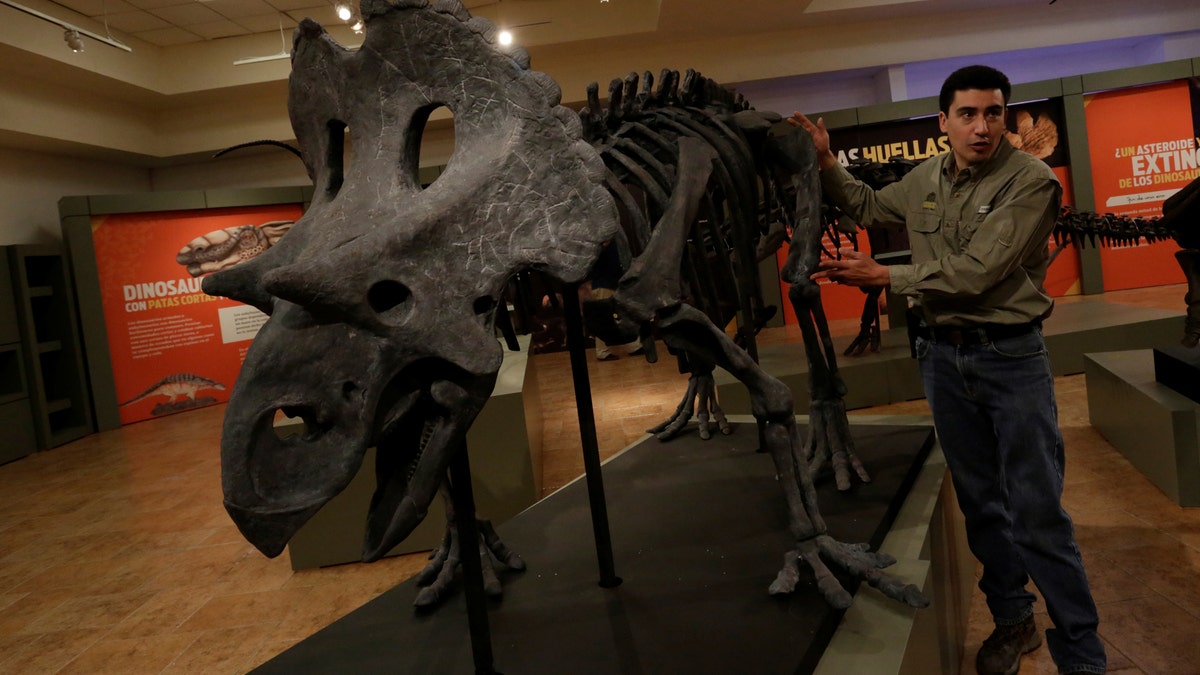
File photo: Mexican paleontologist Hector Rivera explains to the media with a scale replica how Yehuecauhceratops dinosaur looks during a news conference at the Desert Museum in Saltillo, Mexico February 10, 2017. (REUTERS/Daniel Becerril)
According to a new study, dinosaurs may may become the dominant species on the planet thanks to volcanoes.
The study, published in the journal PNAS, said that the end of the Triassic Period, roughly 201 million years ago, saw the largest extinction of animal life in Earth's history. This coincided with a large amount of volcanic activity, which may have paved the way for the dinosaurs.
"Such episodic volcanism likely perturbed the global environment over a long period of time and strongly delayed ecological recovery," the synopsis of the study reads.
THE SUN MAY HAVE HAD AN 'EVIL TWIN' THAT WIPED OUT THE DINOSAURS
The study was published online on June 19, though it was received and reviewed on April 3 and ultimately approved on May 19, 2017.
It was performed by lead author Lawrence Percival, along with Micha Ruhla, Stephen Hesselbob, Hugh Kenkynsa, Tamsin Mathera and Jessice Whiteside.
In performing the research, the authors of the study looked at volcanic rocks from four different continents all dated around the same time. They found that there was a large spike of mercury, which often becomes very prevalent during volcanic activity.
What's astonishing about the volcanic activity is how long it lasted four -- potentially a million years, according to the researchers.
In an interview with the BBC, Oxford University Prof. Tamsin Mather said, "You get these fissures, these cracks opening up in the Earth's crust, and probably some fire fountains, and also lava flows opening up."
With such an enormous amount of volcanic activity occurring around the planet, it's likely that anything alive would have been killed, not just from the molten lava, but from the rising carbon dioxide levels and the volcanic ash potentially impacting sunlight.
As a result, creatures alive back then, mostly reptiles and early amphibians, became extinct, leading to the rise of the dinosaurs.








































